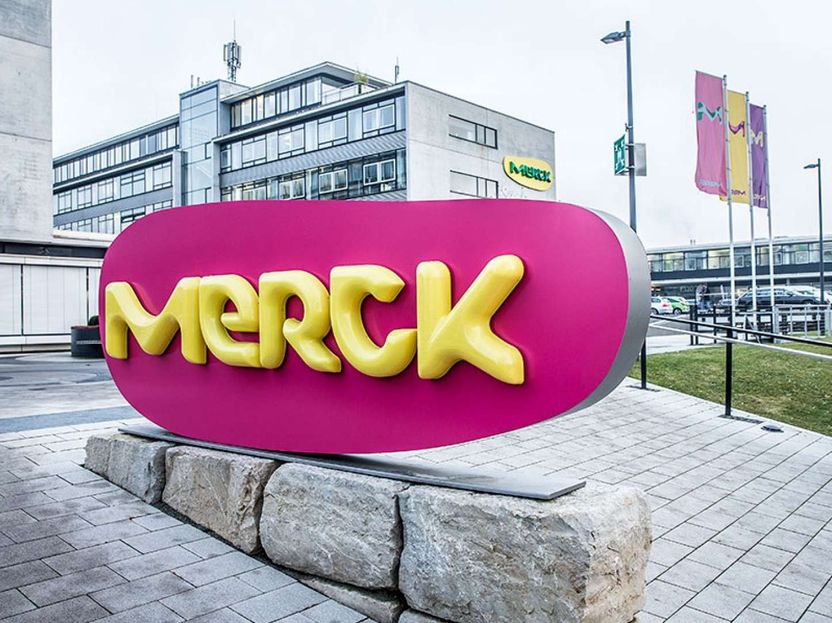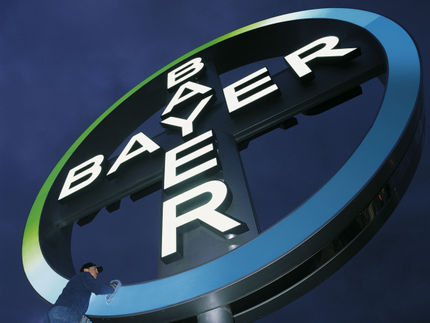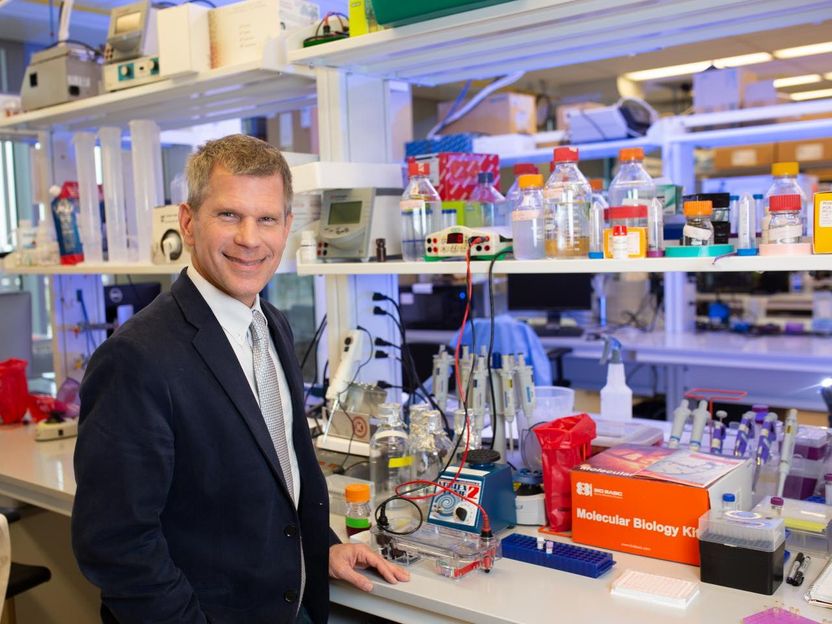Q1 Results: Merck Benefits from Global Diversification in a Challenging Environment
Medium-term structural growth drivers intact
Merck generated net sales of € 5.3 billion in the first quarter of 2023. This corresponds to an increase of 1.8% over the year-earlier quarter (organically 0.8%). Sales growth was in particular attributable to Healthcare, which delivered significant increases in its business with new medicines, one of Merck’s “Big 3” growth drivers. Life Science, in particular the Science & Lab Solutions business unit, also contributed positively to sales growth. EBITDA pre decreased by −2.6% (organically −1.7%) to € 1.6 billion. The main reasons for this were the decline in the Display Solutions business as well as the significant decrease in earnings contributions from Covid-19-related sales.

Merck KGaA
“2023 will be a transition year for us. As expected, our Life Science and Electronics businesses were confronted with a difficult market environment in the first quarter. The weaker market for Display and Semiconductor Solutions as well as the continued decline in Covid-19-related sales weighed on our business performance,” said Belén Garijo, Chair of the Executive Board and CEO of Merck. “At the same time, Healthcare benefited from the growth of new products. This proves the resilience of our diversified, multi-industry portfolio. Our structural growth drivers remain intact. We are confident that we will be able to achieve our medium-term target of 25 billion euros in sales by 2025.”
In the first quarter of 2023, Merck continued to drive key growth and strategic initiatives. A team from the Life Science business sector helped to further drive digitalization by publishing its code library together with partner Palantir in March. It is the first-ever customer-developed, open-source library for Palantir Foundry that provides consistent digital blueprints to boost productivity and quality for developers. In March, Merck strengthened its Oncology franchise and terminated the alliance agreement with Pfizer on Bavencio. Effective June 30, 2023, Merck will regain the exclusive worldwide rights to develop, manufacture and commercialize Bavencio. As a result, Merck expects a significant increase in profit from sales of Bavencio. In the Electronics business sector, construction work for a new production facility for semiconductor materials began in Kaohsiung, Taiwan, in February.
Lower customer utilization in Display Solutions and continued decline in Covid-19-related demand impact earnings
Group net sales rose organically by 0.8% to € 5,293 million in the first quarter of 2023. Foreign exchange effects, especially from the development of the U.S. dollar, contributed 0.8% to the growth in sales. Portfolio effects were responsible for 0.2% and were mainly attributable to the acquisitions of the biopharmaceutical contract development and manufacturing organization Exelead, Inc., USA, as well as the chemical business of Mecaro Co. Ltd., a Korea-based supplier to the semiconductor industry.
EBITDA pre fell by −2.6% to € 1,587 million. Organically, the decline amounted to −1.7%. Among other things, this was due to lower customer utilization in Display Solutions as well as the significant decrease in earnings contributions from Covid-19-related sales. In addition, one-time effects such as royalty and license income had a positive impact on EBITDA pre in the year-earlier quarter. EBITDA pre was adversely affected by foreign exchange effects of −0.5% and a portfolio impact of −0.4%. The EBITDA pre margin was 30.0% and EPS pre amounted to € 2.36.
Life Science: Robust growth in core business compensates decline in Covid-19-related demand
In the first quarter of 2023, the Life Science business sector generated net sales of € 2,487 million. The robust growth in the core business compensated for the expected, sharp decline in Covid-19-related sales. Compared with the year-earlier quarter, this represents an increase of 1.7%, comprising 0.6% from organic growth, 0.9% from foreign exchange effects and 0.3% from acquisitions.
The Process Solutions (−4.1%) and Life Science Services (−7.2%) business units saw organic sales declines due to the significant decrease in Covid-19-related demand. By contrast, the net sales of Science & Lab Solutions increased organically by 5.9%. This business unit offers products and services to support research activities. With net sales of € 1,276 million, it accounted for 51% of Life Science sales in the first quarter.
EBITDA pre of Life Science decreased by −2.9% to € 901 million compared with the first quarter of 2022. This reflected the lower share of Covid-19-related sales and earnings as well as higher investments in growth segments such as novel modalities, among other things. Organically, the decline amounted to −1.4%. Foreign exchange was responsible for −1.0%, and portfolio effects for −0.5%. The EBITDA pre margin of Life Science was 36.2%.
Healthcare: Very good first quarter driven by growth of recent launches
In the first quarter of 2023, sales of the Healthcare business sector increased by 6.2% to € 1,905 million. Organic growth was 5.3%. Foreign exchange had a positive effect of 0.8% on sales growth.
The key growth drivers were once again new Healthcare products: The immuno-oncology drug Bavencio generated an organic sales increase of 30.6%. Sales of Mavenclad for the treatment of relapsing multiple sclerosis grew organically by 23.0%. Both the Fertility and the Cardiovascular, Metabolism & Endocrinology franchises saw organic sales growth of their portfolio products.
EBITDA pre of Healthcare rose by 11.4% to € 590 million in the first quarter of 2023. Organic growth was 10.5%, supported by positive foreign exchange effects of 0.9%. The EBITDA pre margin of the business sector came in at 30.9%.
Electronics: Semiconductor Solutions grows slightly despite decline in the semiconductor materials market; continued weakness of Liquid Crystals
In the Electronics business sector, sales decreased by −5.9% to € 901 million in the first quarter of 2023. The organic decline of −7.1% was mitigated by positive foreign exchange effects of 0.8% as well as a portfolio effect of 0.3%. In a semiconductor market that slowed as expected, Semiconductor Solutions generated an organic sales increase of 2.0%, well above market. This business unit accounted for around two thirds of the sales of Electronics. By contrast, the Display Solutions (−28.1%) and Surface Solutions (−4.9%) business units saw organic sales declines. In Display Solutions, this was due in particular to continued low demand for liquid crystals.
EBITDA pre of Electronics decreased by −18.0% to € 237 million compared with the year-earlier quarter. The organic decline amounted to −19.8%. The further price decline in the Liquid Crystals business, the weaker market environment in Semiconductor Solutions as well as cost inflation had negative impacts. Foreign exchange effects of 2.3% made a positive contribution to the development of EBITDA pre, whereas the acquisition of the chemical business of Mecaro had a negative impact of −0.4% on this figure. The EBITDA pre margin of Electronics was 26.4%.
Forecast for fiscal 2023: Healthcare remains a growth driver; negative impacts from softer market environment in Electronics, continued decline of Covid-19-related demand and high cost level
Merck is specifying the forecast for fiscal 2023. For sales, the company expects growth especially from new Healthcare products and the Life Science core business. Negative impacts are likely from declining Covid-19-related sales, the slowing Display Solutions business and an even more pronounced weakening of the semiconductor materials market. This market is expected to recover in the second half of 2023, but at a later point and from a lower base than previously assumed.
For EBITDA pre, Merck expects the high level of costs due to inflation to weigh on earnings of all business sectors, in particular in Life Science and Electronics. EBITDA pre of Healthcare is forecast to increase organically, mainly thanks to the expected strong business performance.
























































